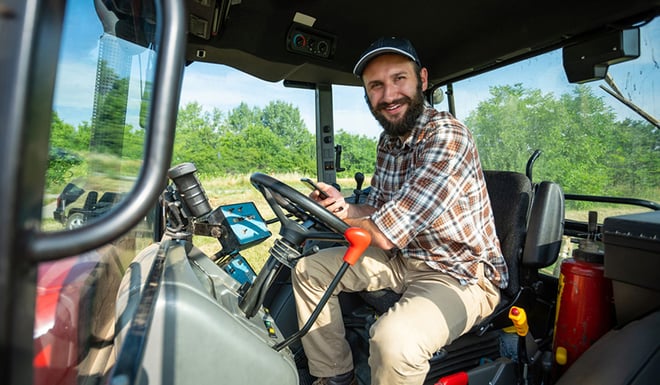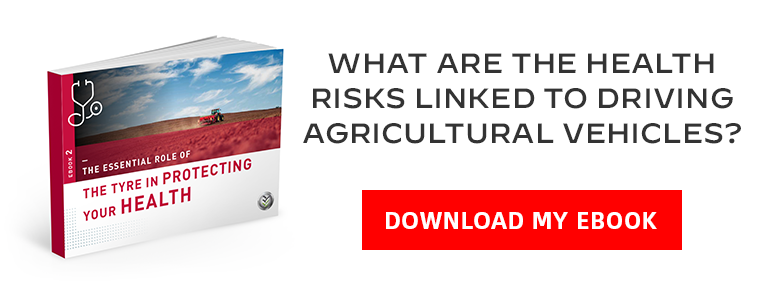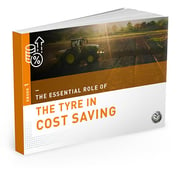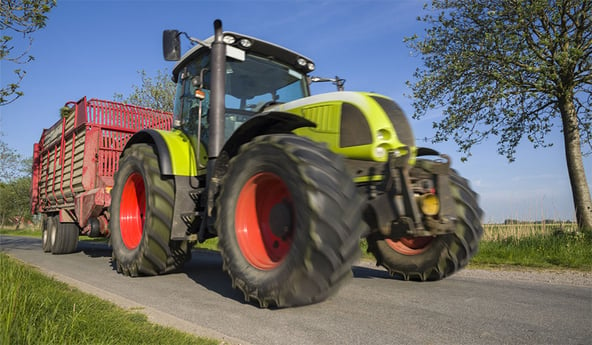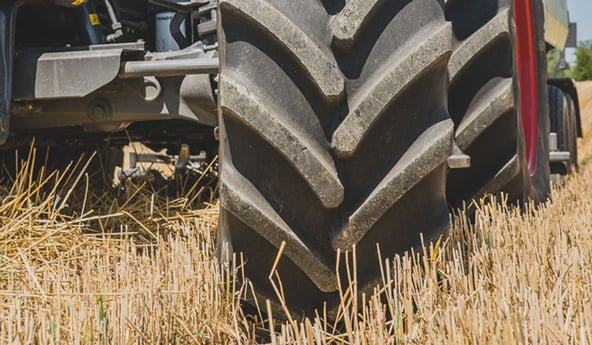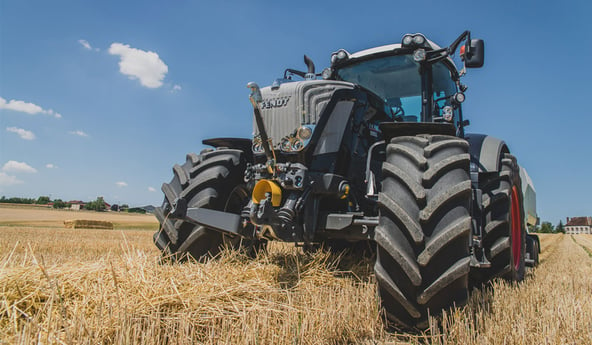When discussing tractor tyres, we often talk about soil preservation, crop yields and the use of low-pressure tyres to avoid soil compaction, but there is another aspect linked to your agricultural tyres which is rarely mentioned: preserving the farmer’s health!
You are the keystone of your farm, the director of your business and without you nothing is possible, so preserving your health is definitely the best management decision that you can make.
When you spend hours behind the wheel of your farm vehicles your body withstands permanent vibrations which are not without consequences to your health...
Over-repetitive vibrations are a danger to your health
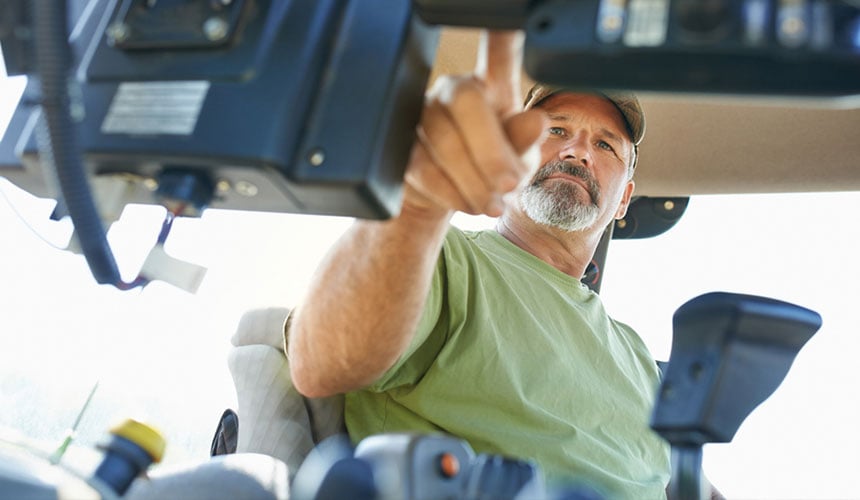
Daily exposure over several hours is what really leads to problems.
As farms are getting bigger and bigger, when you work on your land you tend to sit at the wheel of your tractor for several hours on the trot, being subjected to vibrations that are 3 times stronger in your tractor par rapport à ce que vous pourriez subir au volant d'une voiture pour le même temps d'exposition.
The consequences are therefore even greater, in addition to being in a sitting position for long periods which weakens the spinal column, vibrations often lead to premature ageing of the vertebral discs, which results in frequent sciatica, lumbago and herniated discs.

You can reduce the consequences of the vibrations on your body
Vibrations spread through the tractor to the farmer’s body. First, they are absorbed by the tyre, the interface between the ground and the tractor, then by the cab and the front axle if suspended, and lastly by the seat.
The role of the tractor fittings is therefore decisive in limiting the body’s exposure to vibrations.
The tyre, the cab and the seat are the three principal levers in limiting this exposure.
The quality of the tyre has a direct impact on the level of vibrations which the farmer endures, which means that it is very important to adapt your tractor’s tyre mount to the work that you do most frequently, o adapt tyre pressure to reduce vibrations and to use low-pressure tyres, if possible, as they have a much higher shock absorption capacity than discount or low quality tyres.
Regardless of the tractor, you can also take more frequent breaks and walk for a while beside the tractor to avoid staying seated for too long, and lastly, you can strengthen the back muscles which protect your spinal cord by doing a few series of pull-ups every morning before you start work using a standard chinning bar that you can find in any sports shop.
What is the impact of tyres in the risk of your tractor overturning?
The tyre represents the only link between your vehicle and the ground, and this contact is highly dependent on the type of ground, with reactions very different between field and road.
As your tractor is designed essentially to transmit tractive force to the ground at a low speed, it is therefore less suited to transport or speed on the road.
The risk of loss of grip is therefore much higher on the road and is linked directly to the state of your tyres, to their pressure, the mass of your tractor or trailer and the capacity of your tyres to keep control whatever the situation. Worn, ageing tyres which are badly adjusted or of poor quality often cause the most serious accidents.
The role of tractor tyres in your braking capacity
When you drive with a full load, are you always certain that the load distribution is adapted to the capacity of your tractor’s braking system?

Generally, a four-wheel drive tractor only has brakes on the back axle, an automatic mechanism engaging the front axle when the brake is used.
It’s your tyres which bear the load transfer, and in case of emergency braking, the mass of the tractor and attachment squash the front tyres and shift the load off the back axle.
Only quality tyres, which are designed to withstand this type of situation and which have specially adapted rubber, are able to keep the trailer in line.
The latest generation agricultural tyre, an innovation for farmers’ health and safety

Suspended front axle and cab, braking system with yaw control, electronic stability programmes, low pressure, high flexion tyre are all technological innovations which make it possible to ensure the safety and as such protect the health of the farmer.
CONCLUSION
The latest generation VF (Very High Flexion) technology tyres have great flexibility in the sidewalls which enable the reduction of vibrations and shocks for the driver.
The latest generation VF (Very High Flexion) technology tyres have great flexibility in the sidewalls which enable the reduction of vibrations and shocks for the driver.
At the same time, they increase the soil footprint without affecting the lifespan of the tyre. Lastly, thanks to this technology, they can carry a load of up to 40% more.
Find out more
The Bridgestone-agriculture.eu blog is written and administered by tractor tyre experts who are available to provide you with the advice you need to help you to maximise your productivity: Technical data for agricultural tyres — Agricultural tyre performance — Air pressure advice — Solutions to avoid soil compaction — Sprayer tyre pressure — etc.
To take it one step further and learn more about the risks linked to the use of unsuitable agricultural tyres or the dangers of inappropriate tyre pressure, download the free white paper below:
Most people who read this article have also read some of the following articles:
This information is intended only to make you aware of the technical and functional aspects of agricultural tires and their use. It does not allow you to make a judgment or a definitive conclusion on a given problem. Only your agricultural tire expert is able to make a technical assessment and take a final decision, case by case.
Leave a
commentary
Your email address will not be published.
Required fields are indicated with *


